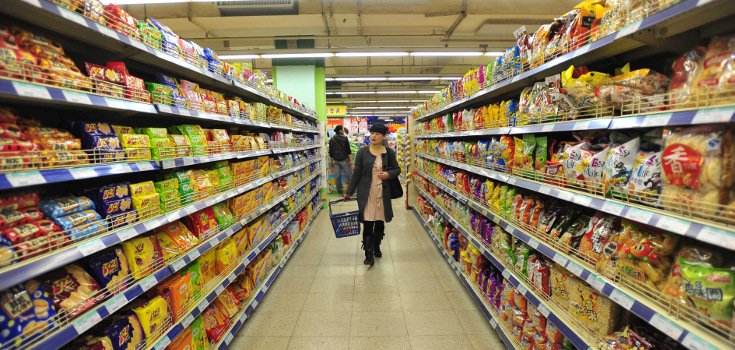Study: Walmart & Major Retailers are ‘Making Us Fat’

While we can’t blame any one company for our burgeoning waistlines, a paper published by the National Bureau of Economic Research suggests that Big Box stores like Wal-Mart and Sam’s Club, as well as the prevalence of restaurants, may be a huge contributing factor to American’s weight gain.
The group of economists who conducted the study suggest that with processed food being cheaper and more readily available (at least when bought from mega stores like Walmart), we simply eat more of it. Co-author Charles Courtemanche, a health economist at Georgia State University, thinks that, “at least a sizable portion of the rise in obesity can be characterized as responses to economic incentives.” But that initial assumption can be deceiving.
It is more likely the kinds of cheap food that are available which are making us sick and fat.
The study goes on to point out that restaurants and Big Box stores are extremely effective at delivering convenience and junk foods which are loaded with fat. (These foods also happened to be loaded with other toxic products like MSG, GMOs, and high-fructose corn syrup which all have also been linked with higher obesity rates.)
Comparing data compiled from more than two dozen different economic and demographic factors, the researchers found that the density of restaurants and large-scale food retailers in particular areas was a major factor between 1990 and 2010 in the nationwide rise of obesity and BMI (body mass index) which measures weight against an individual’s height. The researchers found that there were far more obese people (those who were more than 50% overweight) in these Big Box and restaurant-dense areas.
The researchers concluded that Walmart is at least partly the cause of why we’re all getting fat:
“A growing literature examines the effects of economic variables on obesity, typically focusing on only one or a few factors at a time. We build a more comprehensive economic model of body weight, combining the 1990-2010 Behavioral Risk Factor Surveillance System with 27 state-level variables related to general economic conditions, labor supply, and the monetary or time costs of calorie intake, physical activity, and cigarette smoking.”
Some larger chain stores are changing the types of foods that will be available to Americans, likely in response to consumer demand. One example is Target, which expects to roll out with thousands of new organic, healthy, and sustainable products in the next year. This will prove that convenience and cheaper prices don’t necessarily have to mean a tendency toward an obese nation.
Additional Sources:
Image courtesy of: BusinessInsider

Except
that they’re not. There’s a difference between enabling and forcing,
which “making us” is forcing, but these companies are enabling.
Yea Big Box stores are making you fat, not the fact that you refuse to get off the couch to exercise.
It is lack of personal restraint…all people can afford NOT to buy chips, cookies, ice cream, soda, beer ect. Most could afford to stop eating for a month or so. Buy fruits, vegetables and meats…give up those crappy GMO cereals and pus filled milk & get up and feed your kids a piece of fruit and a couple of eggs for breakfast AND a glass of water. ( most all of you are chronically dehydrated)